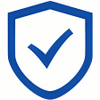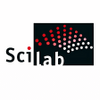Free proctoring browser extension
Free proctoring browser extension
Vote: (1 votes)
Program license: Free
Version: 5.12.0.0
Works under: Windows
Vote:
Program license
(1 votes)
Free
Version
5.12.0.0
Works under:
Windows
Pros
- Automates the monitoring of online exams
- Identity verification to maintain test integrity
- Tracks browser activity to prevent cheating
Cons
- Prone to technical glitches affecting test access and continuity
- Overly sensitive to normal test-taking behaviors
- Raises significant privacy concerns
- Third-party security vulnerabilities
Introducing Honorlock: A Digital Proctoring Solution
Honorlock is a digital proctoring tool intended to help educators administer online tests more securely and maintain academic integrity. In a digital age where e-learning is becoming increasingly common, this software aims to replicate the oversight found in traditional examination environments. But how effective is it in achieving this goal? Here’s our comprehensive review.
Automated Exam Supervision
Honorlock's main selling point is its automated system that monitors student activities during exams. The system includes features such as automatic identity verification, which necessitates students to scan their faces and IDs prior to starting a test. Additionally, a room scan is required to ensure a proper test-taking environment, ostensibly free from unauthorized resources.
Detection and Prevention of Academic Dishonesty
The overarching purpose of Honorlock is to prevent and detect instances of cheating. It does so by employing a variety of monitoring techniques, such as tracking browser activity to flag attempts at navigating to disallowed web pages. The software is also on the lookout for suspicious behaviors that may indicate academic misconduct, including multiple gaze shifts away from the test screen or repeated reviews of previous questions.
Technological Hiccups
Despite its ambitious objectives, Honorlock doesn't always deliver a seamless experience. Students have reported technical difficulties that affect both the initiation and the conduct of exams. Problems with facial and desk scans can prevent access to tests, posing significant inconvenience and stress. Additionally, the system can be overly sensitive, pausing exams for innocuous actions, such as glancing at scratch paper or revisiting previous questions, leading to undue interruptions.
Privacy Concerns
One significant issue surrounding Honorlock is the potential infringement on students' privacy. While operational, the software requires access to personal information such as school ID details, as well as control over the computer's camera, microphone, and browser activity. What is perhaps more pressing is the extent and duration for which this data is stored, which remains unclear, raising questions about the protection of student information.
Security Implications
The incorporation of third-party apps within Honorlock's infrastructure also raises red flags regarding data security. Tools like Inspectlet, used to record network activities, could be avenues through which sensitive student data is vulnerable to unauthorized access or misuse if the system were to be compromised.
Usability and Support
Regarding usability, Honorlock strives for a straightforward user interface, although this is somewhat marred by the aforementioned technical setbacks. As for customer support, whether there are sufficient channels for real-time assistance during testing remains an area for scrutiny, considering the potential for disruptions during critical exam periods.
Conclusion
In summary, Honorlock presents itself as a solution to the challenges of remote test-taking integrity. While its features look promising on paper, practical application reveals technical and ethical concerns. The balance between deterring dishonesty and ensuring a fair, non-invasive testing experience has yet to be perfected by this software. Users should approach with an awareness of these issues and weigh the pros and cons carefully.
Pros
- Automates the monitoring of online exams
- Identity verification to maintain test integrity
- Tracks browser activity to prevent cheating
Cons
- Prone to technical glitches affecting test access and continuity
- Overly sensitive to normal test-taking behaviors
- Raises significant privacy concerns
- Third-party security vulnerabilities



